When I first joined Six Degrees of Separation last month, I was quite delighted at how far my chain of books stretched from the original. This time, I’ve gone on a changed journey. Each of my books links together. And yet they are all so different. Have a look.
I haven’t yet read Rodham. I’m a huge fan of Sittenfeld’s writing, but the reviews for this latest book, featuring Hillary Clinton, are very mixed. Kate, who hosts Six Degrees wasn’t all that keen. This book is a re-imagining of a life, that of a known individual, so that’s my starting point.
Here’s another re-imagining, this time from Greek mythology: Circe, by Madeline Miller. Immortal Circe tells her story through the hundreds of years of her life. She’s known Prometheus; Daedalus and Icarus; Ariadne and the Minotaur; Jason of Golden Fleece fame, and most importantly, Odysseus, and has stories about all of them. Over the years – the centuries – she develops her skills as a witch, We witness her growing independence; her satisfactions as she develops her spells; her joys and loneliness. She takes lovers as they come her way, but never abandons herself to them: until Odysseus .. and Telemachus …
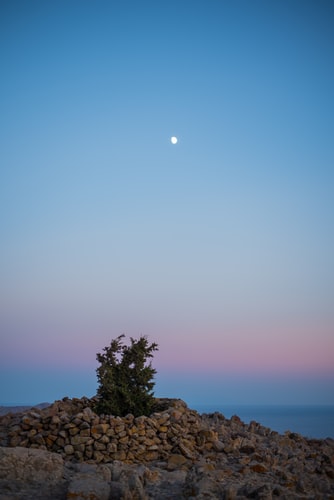
Next is another strong, independent woman: A real one, telling her own story: Stories of the Sahara. The writer Sanmao was a Chinese/Taiwanese woman married to a Spaniard, who realised her obsession to live in the Sahara desert. She was feisty, opinionated, driven, and made it her business to get to know the locals and understand their lives in a way no tourist can.
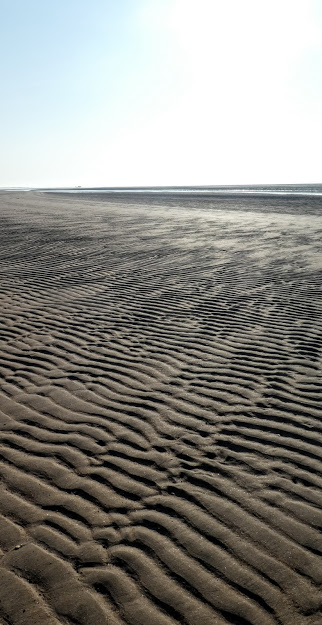
It dawned on me that there’s a theme developing here. These are all stories of women, by women. So let’s stick with it, and look at another independent woman’s story: Raynor Winn’s The Salt Path. It’s the account of a long distance walk undertaken by Ray and her husband when everything that possibly could go wrong in their lives had gone wrong. They’d lost their home, their livelihoods, and in her husband’s case, his health. In one sense they walked away from their problems, spending a year living rough and walking England’s South West Coastal Path. It became their journey towards a new life.
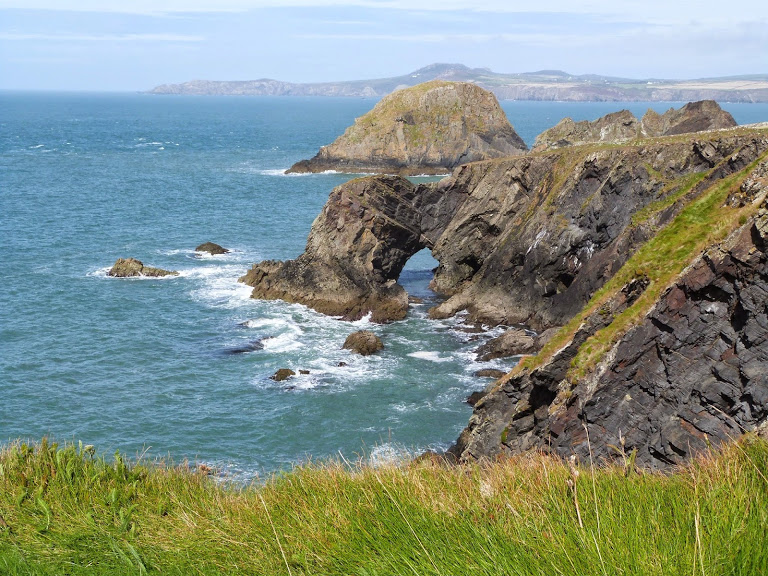
More strong women, more sea, more difficult times: the diving fisherwomen – haenyo – of Jeju Island, South Korea. The Island of Sea Women by Lisa See tells an involving story following the story of two women whose lives develop through their membership of the haenyo culture, as they live through a twentieth century defined in Korea by occupation, internal conflict, deprivation and rapid change.

Over to Russia. Zuleikha by Guzel Yakhina. This story, with a young uneducated Tatar woman at its heart, does much to bring to life the gulags and their unhappy part in Soviet history. Zuleikha is the young wife of a prosperous young farmer. After his murder she’s taken prisoner and survives an apparently endless train journey and real physical, emotional and economic hardship, into a previously unpopulated part of Siberia where against the odds, she builds a life.
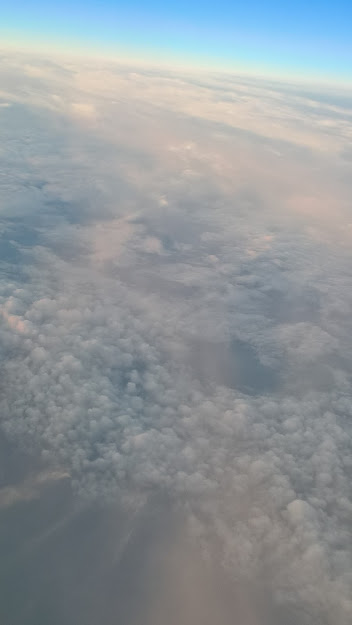
Gina’s life is very different. She’s a spoiled, headstrong, privileged 14 year old Hungarian who for her own protection during WWII is sent away to a puritanical isolated boarding school where she has some hard lessons to learn. But what has Abigail, a classical statue in the school’s grounds, and who will receive messages from the pupils got to teach her? Read Abigail by Magda Szabó to find out.
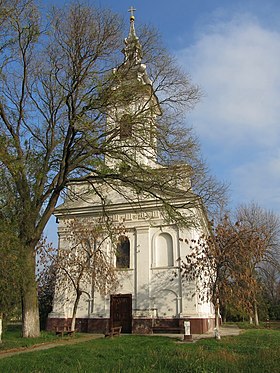
We’ve been to three continents and six countries, gone back in time and remained in the present. We’ve met rich women, poor women, privileged women, and those who often feel without hope. Here’s a chain with six strong links.







Oh, fantastic! You put me to shame in the way that you really read, and think. I have wasted my time in lockdown, I could have used it much more fruitfully, and it’s getting me thinking about how much more of a life of the mind I need to nurture. – for my own sanity
LikeLiked by 1 person
To be honest, Sue, reading has gone by the wayside in Lockdown. Yes, I do read, but nothing like as much as usual, and my mind tends to wander. So don’t be too hard on yourself: I gather it’s a common problem.
LikeLiked by 2 people
Oh, ta!
LikeLiked by 1 person
Reading this post gave my mind a good morning workout.
LikeLiked by 1 person
And maybe a recommendation or two for your next visit to the library? If your library is up and running.
LikeLike
Will come back to read or I’ll be late for t’ai chi. Again! 🙂 🙂
LikeLiked by 1 person
Can’t stand in the way of ‘ealthy living. See you later!
LikeLike
I like the way your theme turned out!
LikeLiked by 1 person
We’re all so different, aren’t we?
LikeLike
All part of the fun.
LikeLiked by 1 person
I do like your chain – and the photos. I didn’t expect to see one of the sand at Alnmouth, a place not very far from me. And you’ve reminded me that I have both Circe and The Salt Path among my TBRs – I must get round to reading them before too long.
LikeLiked by 1 person
I liked them both and loved Circe, so I hope you enjoy them too.
LikeLiked by 1 person
What a great chain! I couldn’t quite match you having read three books in my chain, but I’ve read Circe and The Salt Path, both of which I loved. I could be tempted by the rest, in particular Stories of the Sahara sounds fascinating.
LikeLiked by 1 person
It is. I can’t say I much cared for the writer, but she really immersed herself in her new life and helped me experience it with her.
LikeLiked by 1 person
I love it when people’s links develop their own themes. I’ve not read any of your choices, but Circe is on my shelves.
LikeLiked by 1 person
Then take it off the shelf and read it – please. I hope you wont be disappointed.
LikeLiked by 2 people
I don’t know most of these, but that Lisa See book is one I’ve had my eye on for a while now. Lovely chain!
LikeLiked by 1 person
Thank you. I highly recommend the Lisa See – a very involving story.
LikeLiked by 1 person
Goodness you read some interesting books. I was rather more taken with the photos tbh. I tend to read mainly crime fiction, with the exception of gardening books, but have been curious about the Salt Path. I wonder if my library has it? Perhaps it is time for me to plunge into non-fiction.
LikeLiked by 1 person
If you’re not a non-fiction person, the Salt Path would be a good start. It’s an involving story, well-told, and the descriptions of the landscapes through which they walk will probably engage you, as you know many of them, I guess. I like a good crime novel too, though not too ‘noir’. I’ll be very upset when I have no more Donna Leon to read. I love her Venice – and Brunetti and his family. I like a good Fred Vargas too.
LikeLiked by 1 person
Ah, now I do like scandi noir, but there are also good UK crime writers and I particularly like those who write about places I know. I like good travel writers too, but my library does not have many travel books. Theroux is good.
LikeLiked by 1 person
Never heard of any of these.. Quite interesting.. 😉
LikeLiked by 1 person
With so many books out there, it’s easy not to know them. I’d recommend any of these.
LikeLiked by 1 person
Abigail is a wonderful book, isn’t it?
I really loved Gina as a character.
I wasn’t a fan of Circe. I thought Miller made her too moany and wanted to slap her many times!
I’d like to read all of the others, but The Salt Path is the only one I’ve heard of before. I’ll check what’s in stock at the library.
LikeLiked by 1 person
I really liked Abigail, but Circe was one of my Books of the Year – I read it late in 2019, would read it again, and my Note to Self is to read Song of Achilles soon. Salt Path? I read it readily enough, it was quite an engaging and even inspiring read. I’ve just looked up that I gave it 4 stars on my Goodreads review, but my memory supplies about 3.
LikeLike
I’m in a minority, possibly of one, on Circe, I know!
LikeLiked by 1 person
I love your chain, Margaret and have a few of your choices on my TBR list. I loved The Salt Path and am looking forward to reading her sequel in the coming months.
LikeLiked by 1 person
Thank you. I noticed that had just hit the bookshelves – I’ll look out for it too.
LikeLiked by 1 person
Brilliant chain, Margaret, you have me inspired by these books and these women. You’ve also reminded me of several titles which I must make more effort with. Never quite managed to get to Circe and always intended to read the Lisa See and also Abigail. Zuleikha is new to me and sounds powerful. One of the perils of Six Degrees – yet more books I want to read…
LikeLiked by 1 person
Oh, I know. This Six Degrees thing is disastrous in many ways – far too many recommendations for my sanity! But it’s great too – you quickly pick out the people who share similar tastes. From what I’ve seen of your reading lists, I suspect the See, Zuleikha and Abigail would all work for you.
LikeLiked by 1 person
Absolutely. I’ve got to know several great bloggers who consistently enhance my reading experience. Good to know those three titles are likely to sit well with me. Now to create several extar hours in each day to accommodate them… and others… 😳
LikeLiked by 1 person
I know ….
LikeLiked by 1 person
Won’t surprise you that The Salt Path appeals, and the Lisa See. Possibly Circe if she came my way. Not really interested in crime writing but Donna Leon is an exception. 🙂 🙂 Thanks for the suggestions, Margaret. Happy Sunday!
LikeLiked by 1 person
I don’t know how easy it is for you keeping up with books from your Portuguese hideaway Jo. I know I lived in charity shops when we came to England from France, scooping up enough reading matter for the next few months.
LikeLike
Yes, that’s how it is here, Margaret. We belong to the library but the computer system since it reopened after Covid makes it hard work. We have to rely on expats and charity shops. Many use Kindles instead 😕💕
LikeLiked by 1 person
Can’t be doing with e-readers. I gave Malcolm one for his birthday in 2019 … and neither of us has ever managed to use it, mainly from lack of motivation.
LikeLiked by 1 person
I’ve not read any of the books in your chain, although the Island of Sea Women is on my wish list. Great chain!
LikeLiked by 1 person
Thank you. Yes, I’d highly recommend the Island of Sea Women. A good and informative story, well told.
LikeLike
What an interesting chain, thanks for sharing it.
LikeLiked by 1 person
Fir different reasons, all our chains are interesting – we’ve gone in so many very different directions.
LikeLiked by 1 person
They all sound very interesting, but I think I would rather give my time to “The Salt Path” or “Zuleikha” than to “Rodham”.
LikeLiked by 1 person
Yes, I can see that. Looking at your wide interests, I think the scholarship that has informed Circe might put this one on your list too.
LikeLiked by 1 person
Thank you for the reminder about Raynor Winn. I heard her interviewed recently about her second book Wild Silence and I made a mental note (and lost it) to read The Salt Path
LikeLiked by 1 person
I think you’d enjoy it,though it’s a long way from your situation.
LikeLike
Oooo, what intriguing connections. You’ve given me a few suggestions for my TBR list. Thanks.
LikeLiked by 1 person
We all seem to get plenty from this challenge. It seems to turn into Grrr, not thanks, as there are too many!
LikeLiked by 1 person
What a chain of interesting books – such a variety. I loved Sittenfeld’s “American Wife”. I expect “Rodham” to be equally well-observed?
LikeLiked by 1 person
Well, I’ve not read it yet, but I do love Sittenfeld’s writing, so almost certainly!
LikeLiked by 1 person
What a great job you did with that first link and with your theme. I really enjoyed the Lisa See book too!
LikeLiked by 1 person
Ah! Someone else who’s read it! Yes, I found it a really immersive (oops, no pun intended) read.
LikeLike
Thank you for introducing these books, Margaret. Beautiful photos.
LikeLiked by 1 person
Thank you> I hope you maybe have a chance to try something from the list.
LikeLike
I love this chain and your pictures! I finally gave up on ever getting my hands on Circe at the library and just ordered it online last week. Your other books sound fascinating too. I’ll have to look for them. Thanks for sharing!
LikeLiked by 1 person
I do hope you enjoy Circe as much as I did – and maybe some of the others too! Thanks.
LikeLike
Hi Margaret! Oh how clever you are! This is done beautifully. And those photos. Gorgeous.
I still haven’t read Circe,but now I just want to read it even more!
Happy September and here’s my 6 Degrees of Separation Sep 2020
LikeLiked by 1 person
Oh do. And your choices look great too. It’s so interesting seeing all the different directions we choose.
LikeLike
Oo – thank you for this. I’m always looking for a read that takes me somewhere else in the world. And, despite my love of kimchi, I’ve yet to visit South Korea in literature or in real life, so have made a note of ‘The Island of Sea Women’.
LikeLiked by 1 person
That would be an excellent place to start: very readable. As is Pachinko, by Min Jin Lee. Great stories both, and bringing with them an understanding of twentieth century South Korea.
LikeLiked by 1 person